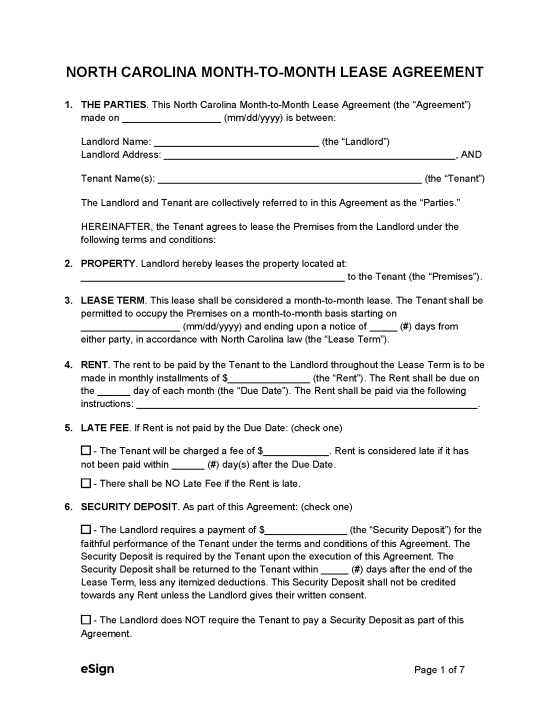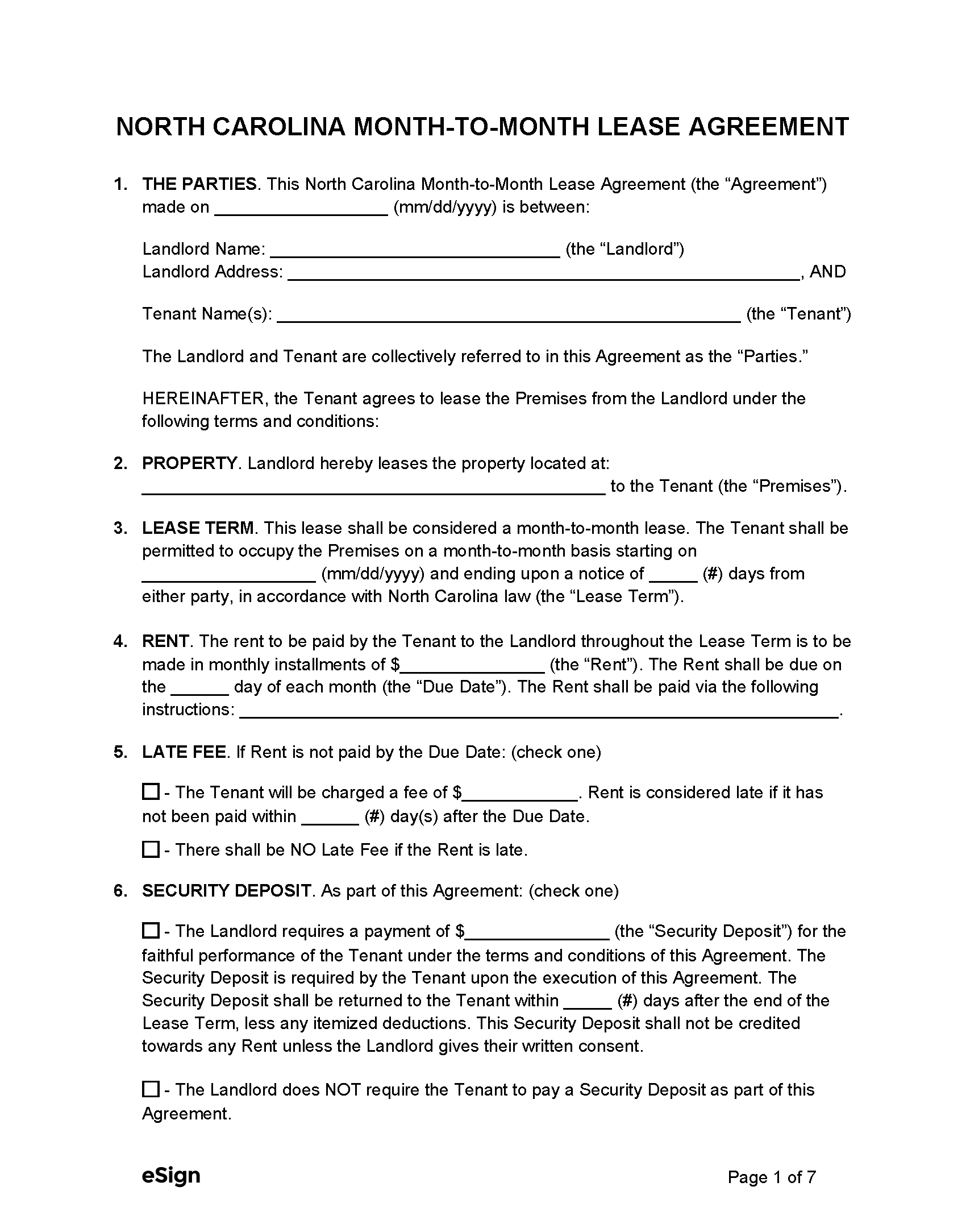Rental Application – Used to verify someone’s background and credit history before authorizing a lease agreement.
Month-to-Month Laws
- Termination Notice – A lease termination letter must be issued seven days before the expiration of the rental period.[1]
- Rent Increase Notice – North Carolina has no laws on notice requirements for rent increases. Landlords should provide at least seven days’ notice of the increase.
Required Disclosures (2)
- Lead-Based Paint Disclosure (PDF) – This disclosure is used to reveal whether lead paint exists on the premises and is required if the leased property was built before 1978.[2]
- Security Deposit Disclosure – Within 30 days after the lease begins, the landlord must disclose the name and address of the bank where the tenant’s security deposit is stored, or if the deposit is kept as a bond, the name of the insurance company that issued the bond.[3]

